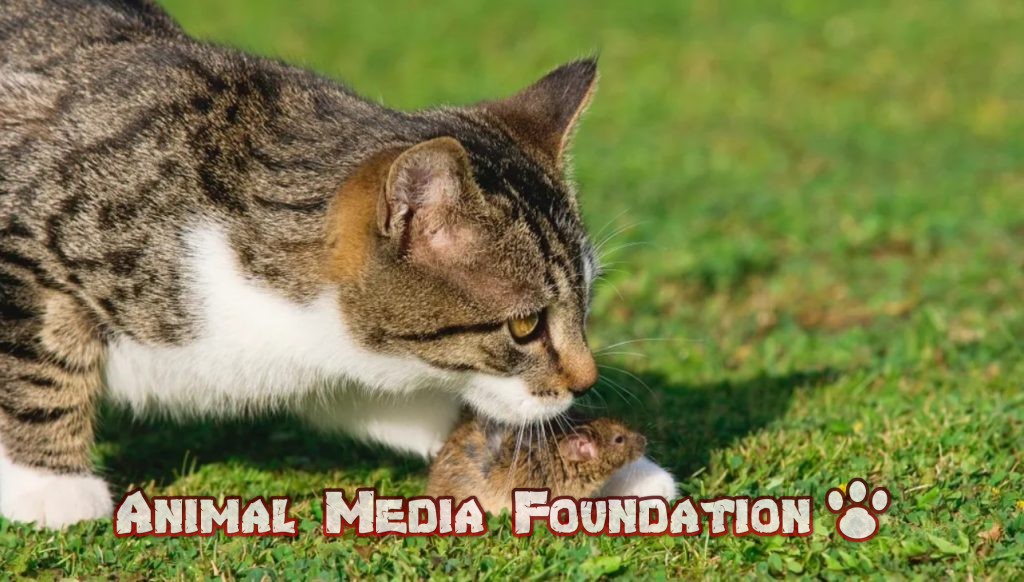Why Do Cats Catch Mice Outside But Not Inside?
Have you ever wondered why your cat brings home mice or other small animals after spending time outside, but doesn't seem motivated to catch them if they get into your house? This common feline behavior has some logical explanations behind it.
In this article, we'll explore the key reasons why cats catch mice and other prey outside but generally ignore them inside your home. We'll look at things like their natural hunting instincts, how the environment impacts their motivation, and whether they see indoor rodents as food at all.
Understanding your cat's relationship with mice better can help you take steps to deter mice from entering in the first place. It also sheds some light on how your cat's mind works regarding hunting prey.
Your Cat’s Innate Hunting Drives
Cats are natural-born hunters equipped with strong predatory instincts and skills for catching small prey. They are motivated to hunt even when well-fed, suggesting they take satisfaction in the act itself.
Outdoors, there is an abundance of natural stimulation and room to roam, bringing out their instincts. The sights, sounds, and smells spark their interest and get them to prowl for something to pounce on.
Bushes, tall grass, and other vegetation also provide good cover for stealthily sneaking up on mice and other rodents outside. Open spaces allow them to dash and leap to catch prey.
Simply put, the great outdoors is the ultimate playground for expressing their natural hunting behaviors!
The Limitations of Indoor Hunting
Your cozy home, on the other hand, doesn't bring out the same reactions. There are no mouse caves to explore or bushes to rustle through. Our modern households lack the triggers and environments for their instincts to kick in.
Cats also rely heavily on their vision and hearing to hunt successfully. Spotting and pinpointing prey amongst indoor clutter and background noise is much more challenging. Their lightning-quick reflexes are hampered without room to gain momentum pouncing.
Additionally, mice have an abundance of hiding spots in walls, cabinets, and appliances inside houses. So even if your cat spies one, the chance to practice their chase-and-catch skills is limited.
In essence, the confines of indoor living dull their reactions, senses, and ability to act on their natural impulses regarding small prey.
Mice Aren’t Viewed as Food Inside the Home
Another element to consider is that cats seem to make a distinction between "outdoor mice" that are viewed as food sources, and "indoor mice" that hold less appeal.
Outdoors, mice are seen as fair game to hunt and eat in their natural diets. But indoor mice living amongst their human family domains aren't generally viewed as prey the same way.
In fact, after catching mice outside, cats often bring them back home to show their owners as "gifts" or signs of their hunting success. Indoor mice just don't spark that same food motivation in their minds.
This relates to some theories that domestic cats see their human families as larger "pride" or social groups. So they identify the indoor areas where cats cohabitate with humans as shared spaces not meant for hunting meals. The outdoors is still seen as the feeding ground.
How to Deter Mice from Entering Your Home
While your cat may not take the initiative to catch indoor mice, preventing them from getting inside in the first place is still important for health and safety reasons. Here are some effective tips:
- Seal any cracks, holes, or entry points mice could squeeze through from outdoors. Pay special attention to the areas around pipes.
- Ensure food items are securely stored away in chew-proof containers. Don't leave pet food dishes out overnight.
- Keep indoor areas clean and limit the clutter in which mice could hide or nest.
- Use natural mouse deterrents like peppermint oil or moth balls around potential entry spots. The strong smells overwhelm their senses.
- Adopt a terrier or other high prey-drive dog breed. Their keen sense of smell and interest in catching small furry things deters mice.
The Bottom Line
To recap, cats are highly skilled hunters of small prey like mice when outdoors where their instincts kick in. But the confined indoor environment coupled with mice's abundant hiding spots makes hunting far less motivating and challenging.
Cats also categorize "outdoor mice" differently than "indoor mice" - seeing them as prey versus intruders in their shared human homes. Deterrent measures are needed to keep mice from invading indoor spaces, even if your cat ignores them once inside.
Understanding the distinction in your cat's reactions to mice based on environment and perception helps explain this common phenomenon. It also reinforces why preventing indoor mice is an important homeowner responsibility requiring proactive steps.
References:
- “Here’s Why Your Cat Isn’t Catching Mice (And What To Do)”:
- Cats are natural predators with strong instincts to hunt prey, but not all cats are equally adept at catching mice.
- Factors like breed and personality play a role in their hunting abilities.
- Enhancing your cat’s environment, adjusting their diet, and observing their natural tendencies can motivate them to catch mice.
- “Why is my cat bringing in mice?”:
- Cats often bring prey back to their core territory, which is generally the house.
- This behavior is an instinct in all cats, even if some don’t actively hunt.
- It’s impossible to stop this behavior completely.
- “Why Your Cat Likes Catching Mice”:
- Cats have a strong tendency to provide food for their family.
- They prefer to wear out their prey by stalking and chasing until it’s exhausted.
- Cats generally do this when on their home turf.






